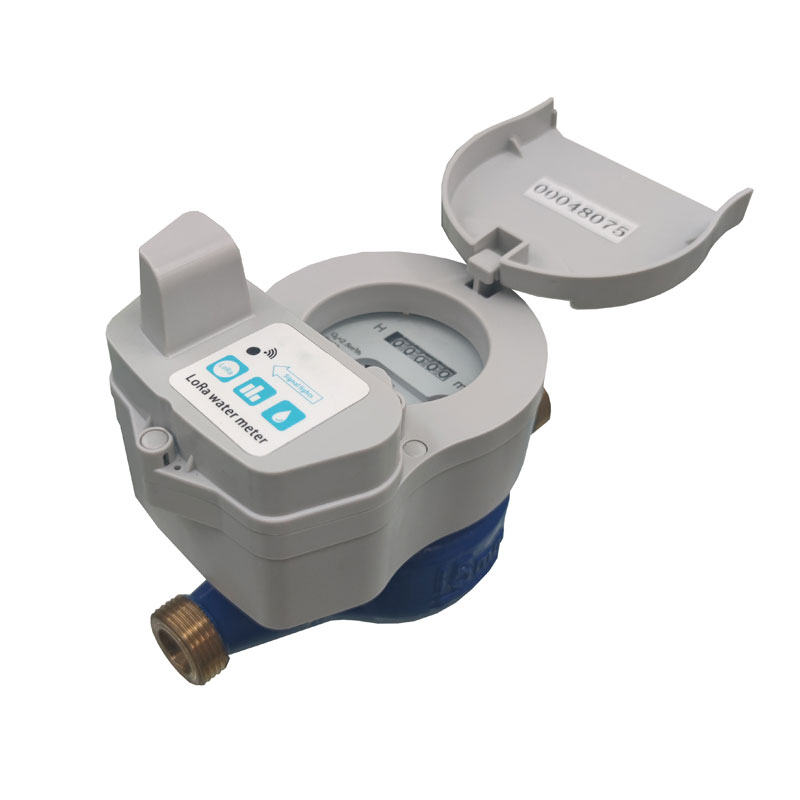- English
- Español
- Português
- русский
- Français
- 日本語
- Deutsch
- tiếng Việt
- Italiano
- Nederlands
- ภาษาไทย
- Polski
- 한국어
- Svenska
- magyar
- Malay
- বাংলা ভাষার
- Dansk
- Suomi
- हिन्दी
- Pilipino
- Türkçe
- Gaeilge
- العربية
- Indonesia
- Norsk
- تمل
- český
- ελληνικά
- український
- Javanese
- فارسی
- தமிழ்
- తెలుగు
- नेपाली
- Burmese
- български
- ລາວ
- Latine
- Қазақша
- Euskal
- Azərbaycan
- Slovenský jazyk
- Македонски
- Lietuvos
- Eesti Keel
- Română
- Slovenski
- मराठी
- Srpski језик
Why Are More and More Homes Choosing to Use Wireless Intelligent Mechanical Water Meter?
2025-05-08
Wireless Intelligent Mechanical Water Meter is a smart water meter that uses wireless communication technology to realize data transmission. Compared with traditional mechanical water meters or wired smart water meters, it has the following significant advantages:

1. Convenient data transmission and efficient remote management
Convenient data transmission and efficient remote management: Wireless Intelligent Mechanical Water Meter uses wireless communication, no wiring is required, and wireless transmission technology (such as NB-IoT, LoRa, Bluetooth, etc.) is used. There is no need to lay complex communication cables, and the installation is simple. It is especially suitable for the renovation of old communities or decentralized water supply scenarios, reducing construction costs and difficulties. Real-time remote meter reading: There is no need for manual door-to-door meter reading. The management party can obtain water consumption data in real time through the system to avoid missed reading and estimated reading problems, improve data accuracy and meter reading efficiency, and save labor costs. Remote monitoring and early warning: It can monitor abnormal water consumption (such as pipeline leakage, water theft), low battery power, etc. in real time, and push early warning information through the system to facilitate timely troubleshooting and reduce water resource waste.
2. Intelligent functions and optimized user experience
Prepayment management: Wireless Intelligent Mechanical Water Meter supports prepayment mode. Users need to recharge before using water to avoid disputes over arrears and reduce the pressure on the management party to collect payments. Automatic reminders when the balance is insufficient to ensure the continuity of water use. Water use data visualization: Users can query historical water use records, real-time flow and other data through mobile phone APP or management platform, clearly understand water use habits, and help water conservation management. Remote valve control operation: The management party can remotely control the valve switch (such as closing the valve for arrears and closing the valve for maintenance), which is flexible and convenient to operate and improve management efficiency.
3. Simple installation and maintenance, adaptable to complex environments
Flexible installation: Wireless Intelligent Mechanical Water Meter is small in size and supports multiple installation methods (such as horizontal and vertical installation). It is suitable for different pipe diameters and pipeline layouts, especially for scenes with limited space. Low power consumption design: It is battery-powered (lifespan can reach 5-10 years), without external power supply, to avoid power outages affecting data transmission, and reduce maintenance frequency. Resistant to harsh environments: It has the characteristics of waterproof, moisture-proof, and anti-magnetic interference, and can adapt to complex working conditions such as humidity, high temperature, and high pressure to ensure long-term stable operation.
4. Accurate and reliable data, helping smart water services
High-precision metering: Wireless Intelligent Mechanical Water Meter uses advanced sensor technology (such as ultrasound and electromagnetic induction), with higher metering accuracy than traditional mechanical water meters. The minimum flow can be accurately measured, reducing metering errors caused by "leakage". Data security encryption: Encryption protocols (such as AES encryption) are used during wireless transmission to prevent data leakage or tampering and ensure information security. Big data analysis support: Accumulated water use data can be used to analyze regional water use trends, pipe network losses, etc., to provide data support for water companies to optimize pipe network design, formulate tiered water prices, etc., and promote the construction of smart water services.
5.Reduce comprehensive costs and achieve significant long-term benefits
Low initial cost: Compared with wired smart water meters, it saves wiring and construction costs, and is especially suitable for large-scale deployment. Low operation and maintenance costs: Reduce the frequency of manual meter reading and on-site maintenance, fast fault response speed, and reduce long-term operation and maintenance costs. Significant water-saving benefits: Through real-time monitoring and water leakage warning, pipe network leakage can be quickly discovered and repaired. According to statistics, the application of smart water meters can reduce the leakage rate of pipe networks by 10%-30%, saving water resources while reducing economic losses.
Applicable scenarios: Wireless Intelligent Mechanical Water Meter is widely used in residential communities, commercial buildings, industrial enterprises, rural water supply and other scenarios, especially suitable for: intelligent transformation of old communities; decentralized water supply or metering in remote areas; property or water companies with high management efficiency requirements; scenarios with high requirements for water saving and leakage prevention.
Wireless Intelligent Mechanical Water Meter solves the pain points of low management efficiency, large metering errors, and high maintenance costs of traditional water meters through intelligent and wireless technological innovations. It is one of the core infrastructures for smart water construction. With the popularization of Internet of Things technology, its application will be further expanded to provide strong support for the refined management and sustainable use of water resources.


